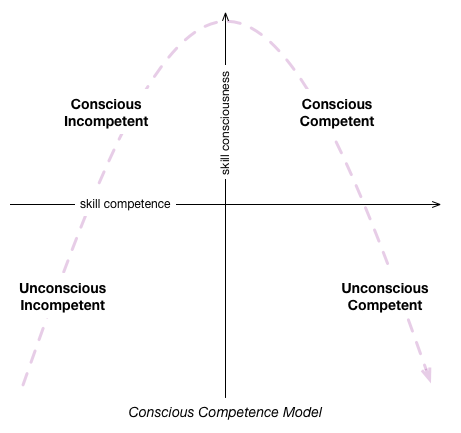Recently a recruiter reached out to me about a three-month Scrum Master role. Was I interested? No, I love my job at Steelray. Did I know of anybody? Well, maybe, but…three months?
A Scrum Master’s core objective is to foster highly aligned, high-performing development teams, which takes time?certainly longer than a few months. Here’s why:
The Team Competency Model
I?d invite you to consider that the specific skill sets of teamwork are acquired through the ?Four Stages of Competence? ? a learning model that applies to teams just as much as individuals:
- Unconscious incompetence
The team doesn?t understand team skills and doesn?t recognize the deficit. - Conscious incompetence
They don’t understand team skills, but know they need them and want to do something about it. - Conscious competence
The team is actively acquiring skills, but it takes a lot of attention and intention to apply them. - Unconscious competence
The team has had so much practice together that?being?a team has become “second nature.”

It?s been my experience that most teams are Stage Two, some are Stage Three, many (too many) are Stage One, and a rare few make it to Stage Four.
How About You?
Considering the huge benefits of great teamwork, it’s worth taking stock to and looking at your own competencies. Where are you on the model? Not just your developers, but sales, marketing and operations? Even senior management?
The litmus test is pretty simple:
- To what degree is everyone on the same page with the work?
- To what degree is everyone on the same page with how they work together?
You may find there?s room for improvement. Even if you?re at stage four, it?s worth being intentional and devoting ongoing time and energy.
Just give yourself longer than a few months. 🙂
